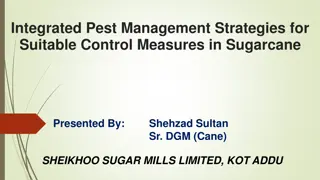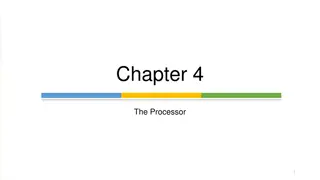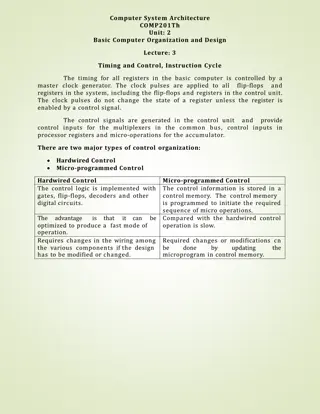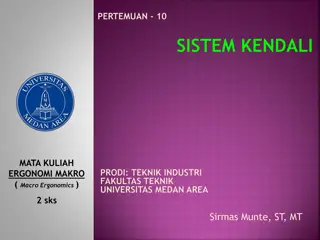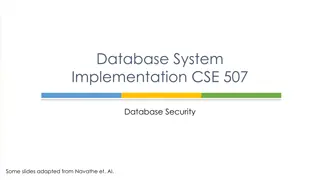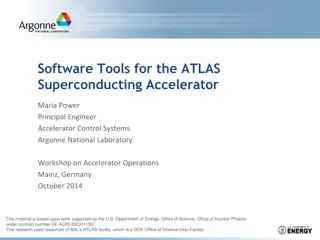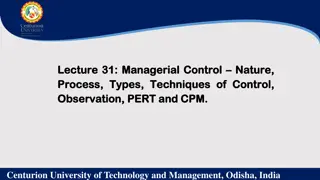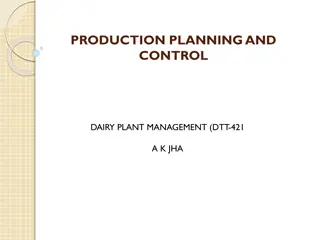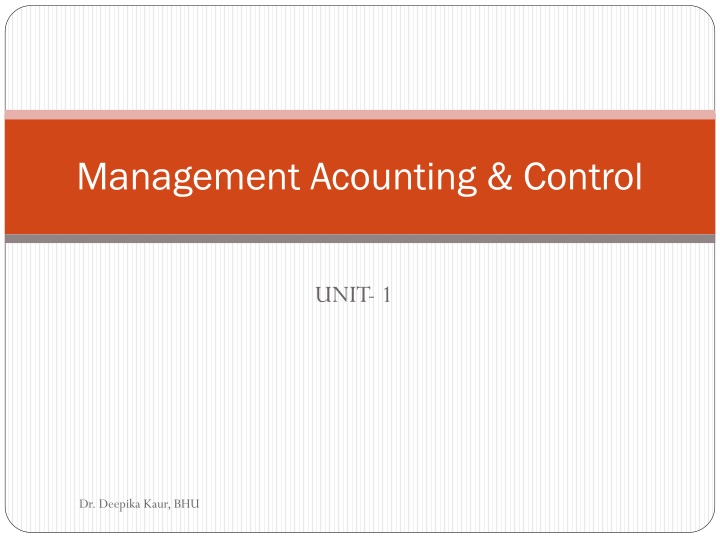
Management Acounting & Control
Functions, scope, and limitations of management accounting, as well as cost accounting, break-even analysis, marginal costing, activity-based costing, budgeting, standard costing, responsibility centers, and current issues in management accounting.
- management accounting
- cost accounting
- break-even analysis
- marginal costing
- budgeting
- standard costing
Download Presentation

Please find below an Image/Link to download the presentation.
The content on the website is provided AS IS for your information and personal use only. It may not be sold, licensed, or shared on other websites without obtaining consent from the author. Download presentation by click this link. If you encounter any issues during the download, it is possible that the publisher has removed the file from their server.
E N D
Presentation Transcript
Management Acounting & Control UNIT- 1 Dr. Deepika Kaur, BHU
SYLLABUS Introduction-Meaning, Functions, Scope and Limitations of Management Accounting, Financial Accounting vs. Management Accounting An orientation to Cost Accounting- Purpose of Cost Accounting, Elements of cost, Kinds of costing, Classification of Costs,Methods of Cost variability Break-Even Analysis- Meaning, Preparation of break-even charts and their interpretation, Managerial uses of Break-even analysis, Marginal Costing- Meaning of Marginal Cost, Analysis of Incremental costs and revenues, Management Application of Marginal IncomeAccounting Activity Based Costing- Concept, main activities and their cost drivers,developingABC System. Dr. Deepika Kaur, BHU Graphic presentation,
SYLLABUS Budgeting- Definition of a budget, Kinds of budgets, Preparation of a Budget, Budgetary Control, Flexible Budgeting, Zero Base Budgeting,Performance Budgeting Standard Costing-Meaning,Types of Standard and their revision, Difference between budgeting and standard costing. Kinds of Variances, Their use in making appraisal and fixing responsibility, Procedure of setting standard cost - Material,Labour and Overhead. Responsibility Centres- Cost Centres, Profit Centres and Investment Centres, Inter divisional transfer pricing concept and methods. Current issues- Social Accounting,Human Resource Accounting, Balance Score Card Discussion of real life business Cases. Dr. Deepika Kaur, BHU
Management Accounting Management accounting collects and provides accounting, economic and statistical information to the men at various managerial levels to assist them in the performance of managerial functions and their evaluations. It is the development and application of various techniques of recording, analysis, interpretation and presentation, making the financial, costing, and other data active and effective in the performance of managerial functions,viz.,planning,decision-making and control . It should be noted that management accounting makes use of not only accounting techniques but also of statistical and mathematical techniques. Dr. Deepika Kaur, BHU
Management Accounting few definitions The application of appropriate techniques and concepts in processing historical and projected economic data of an entity to assist management in establishing plans for reasonable economic objectives and in the making of rational decisions with a view towards these objectives.- AmericanAccountingAssociation. Management accounting is the term used to describe accounting methods, systems and techniques which coupled with special knowledge and ability, assists management in its task of maximising profits or minimising losses. - J Batty Dr. Deepika Kaur, BHU
Management Accounting few definitions Management accounting is concerned with accounting information which is useful to management .- RobertAnthony Management accounting is an integral part of management concerned with identifying, presenting and interpreting information used for: (a) formulating strategy; (b) planning and controlling activities; (c) decision taking; (d) optimising the use of resources; (e) disclosure to shareholders and others external to the entity; (f) disclosure to employees;(g) safeguarding assets.- CIMA,London Dr. Deepika Kaur, BHU
Management Accounting Objectives Fundamental Objective - assist the management in carrying out its duties efficiently so as to maximize profits or minimize losses of management. Sub objectives 1. To formulate Plans and policy 2. Interpretation of financial documents 3. To assist in Decision-making process 4. To help in control 5. To provide report Dr. Deepika Kaur, BHU
Management Accounting Objectives To formulate Plans and policy 1. Planning involves forecasting on the basis of available information, setting goals; framing polices determining the alternative courses of action and deciding on the program of activities. Management Accounting facilitates the preparation of statements in the light of past results and gives estimation for the future. Dr. Deepika Kaur, BHU
Management Accounting Objectives 2. Interpretation of financial documents. The objective of Management accounting is to present financial information to the management. Financial information must be presented in such away that it is easily understood. It presents accounting information with the help of statistical devices like charts,diagrams,graphs,etc. Dr. Deepika Kaur, BHU
Management Accounting Objectives 3. To assist in Decision-making process Management accounting makes decision-making process more scientific with the help of various modern techniques. Information/figure relating to cost, price, profit and savings for each of the available alternatives are collected and analyzed accordingly which will provide a base for taking sound decisions. Dr. Deepika Kaur, BHU
Management Accounting Objectives 4. To help in control Management accounting is a helpful for managerial control. Management accounting tools e.g. standard costing and budgetary control are helpful in controlling performance. Cost control is affected through the use of standard costing and departmental control is made possible through the use of budgets. Dr. Deepika Kaur, BHU
Management Accounting Objectives 5. To provide report Management accounting keeps the management fully informed about the latest position of the concern through reporting. It helps management to take proper and quick decisions. It informs the performance of various departments regularly to the top management. Dr. Deepika Kaur, BHU
Nature of Management Accounting (i) Management accounting is a decision making system: Management accounting provides accounting information in such a way as to assist management in the creation of policy and in the day- to-day operations. Though management accountant is not taking any decision but provides data which is helpful to management in decision making. (ii) Management accounting is futuristic: It helps in planning the future-because decisions are always taken for the future course of action. Management accounting provides selective and fruitful information out of the data collected. Dr. Deepika Kaur, BHU
Nature of Management Accounting (iii) Management accounting is a technique of selective nature: Management accountant takes into account only those data from the financial statement and communicates to the management which is useful for taking decisions. (iv) Management accounting analyses different variables: Management accounting helps in analysing the reasons for variations in profit as compared to the past period. It analyses the effects of different variables on the profits and profitability of the concern. Dr. Deepika Kaur, BHU
Nature of Management Accounting (v) Management accounting does not set particular formats for information: It provides necessary information to the management in the form which may be more useful to the management in taking various decisions on different aspects of the business. Dr. Deepika Kaur, BHU
Nature of Management Accounting (v) Management accounting does not set particular formats for information: It provides necessary information to the management in the form which may be more useful to the management in taking various decisions on different aspects of the business. Dr. Deepika Kaur, BHU
Difference Accounting & Financial Accounting between Management Basis Financial Accounting Accounting system that focuses on preparation of financial statements of an organization to provide financial information to interested parties Management Accounting Accounting system that provides relevant information to managers to make policies plans and strategies for running the business effectively. Meaning Dr. Deepika Kaur, BHU
Difference Accounting & Financial Accounting between Management Basis Financial Accounting Yes Monetary information only Management Accounting No Both monetary and non monetary information such as quantities of materials consumed, workers, produced and sold and so on. Mandatory? Information number of quantities Dr. Deepika Kaur, BHU
Difference Accounting & Financial Accounting between Management Basis Financial Accounting To provide information to outsiders. Management Accounting To assist the management in planning and decision making process providing information on various matters. Objective financial by detailed Dr. Deepika Kaur, BHU
Difference Accounting & Financial Accounting between Management Basis Financial Accounting Management Accounting Format Specified Not specified Time frame Prepared at the end of Prepared as per the need the accounting period and requirements of the which is usually one year. organization. User Internal & external Internal management Dr. Deepika Kaur, BHU
Difference Accounting & Financial Accounting between Management Basis Financial Accounting Management Accounting Reports Summarized reports Complete and detailed about the financial reports regarding various position information Publishing Required to be published Neither published nor & auditing & audited by statutory audited by statutory auditors auditors. Dr. Deepika Kaur, BHU
Difference Accounting & Financial Accounting between Management Basis Financial Accounting Management Accounting orientation Historical.It records Futuristic. It analyses the and analyses business events as they take place and events long after they also anticipates such events have taken place. for the future. Thus, it uses data which generally has relevance to the future. Dr. Deepika Kaur, BHU




